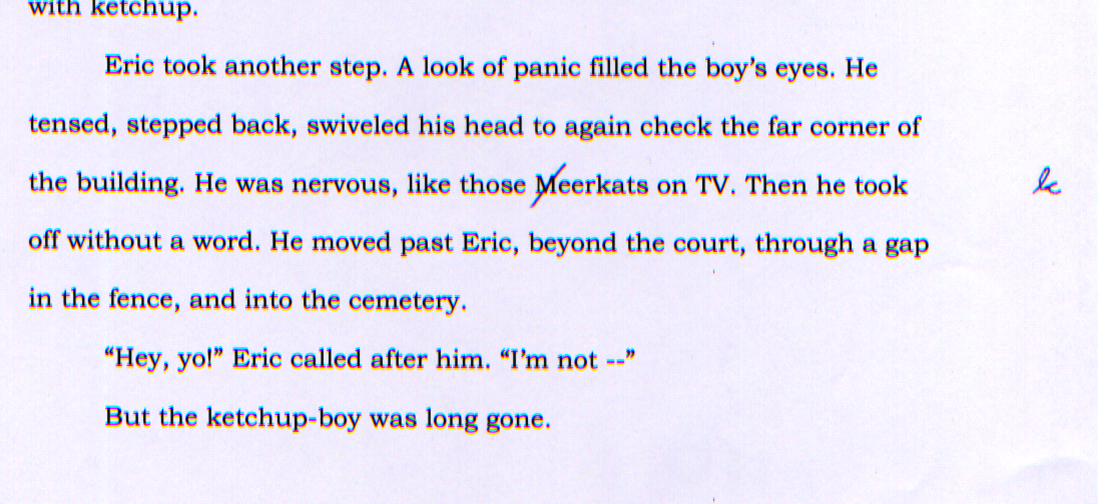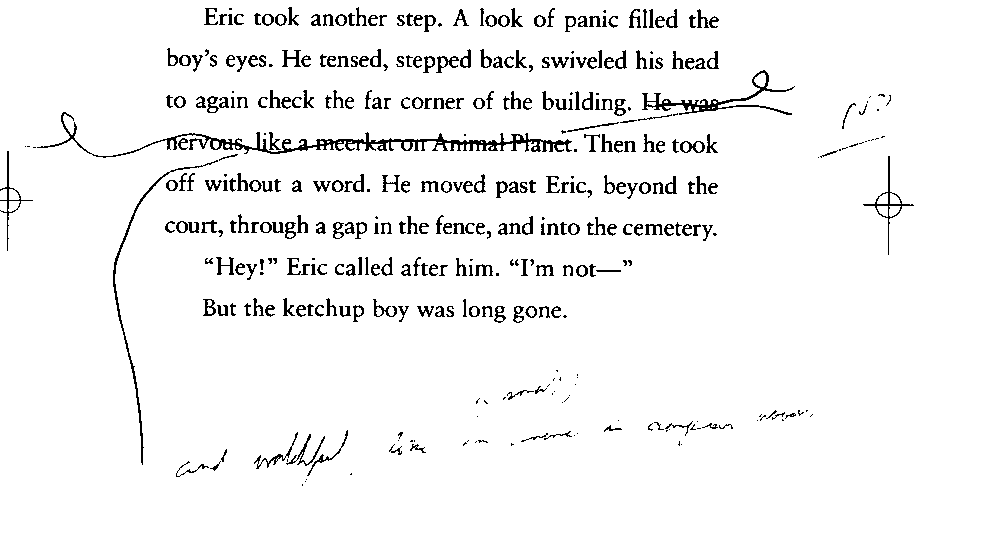In what I hope will be a recurring feature on an irregular schedule, I thought I’d try to convey some of the background to each of my Jigsaw Jones titles.
And in no particular order.
The Case of the Ghostwriter has a lot of cool little things in it that most readers might miss.
I dedicated this book to Frank Hodge, a near-celebrity local bookseller on Lark Street in Albany, who is known and beloved by many area teachers and librarians. He’s one of Albany’s living treasures. When I moved to the area from Brooklyn, in 1990, Frank’s store, Hodge-Podge Books, was right around the corner. Of course, I stopped in and we became friends. I actually put Frank in this story: a guy named Frank owns a store called Hedgehog Books. I even included his cat, Crisis. Jigsaw and Mila visit Frank’s store in the hopes of tracking down a mysterious author.
Chapter Eight begins:
Hedgehog Books was a cozy little store. Our parents had been taking Mila and me since we were little. My mom said that Frank’s favorite thing was to bring books and kids together.
In the story, there’s a series of popular books — The Creep Show series — loosely modeled on R.L. Stine’s “Goosebumps.” Mila has been eating them up, reading titles such as Green Wet Slime and Teenage Zombie from Mars. The author’s name on the cover, a pen name, is R.V. King. (Ho-ho.) There’s a rumor that he’s coming to visit room 201 for the “Author’s Tea.” Who can the Mystery Author be? I bet you can guess.
For me, the part I’m proudest of in this book is Chapter Seven, “My Middle Name,” a tribute to my oldest brother, Neal, who passed away in 1993, a few months after my first son, Nicholas, was born.
Ms. Gleason has the students reading family stories in class, Abuela by Arthur Dorros and The Keeping Quilt by Patricia Pollaco. The students, including Jigsaw and Mila, are asked to write their own family stories.
To research his family stories, Jigsaw interrupts his parents while they are playing chess. “Now’s not a good time,” his father replies. “I’m trying to destroy your dear mother.” (I always liked that line.)
At bed that night, Jigsaw and his father have a heart to heart. Mr. Jones tells Jigsaw about his middle name, Andrew, who was Jigsaw’s uncle. Now this part is totally true, because my son’s middle name is Neal, after his uncle.
“And he died,” I said.
“Yes,” he said. “Andrew died.” I heard the air leave my father’s lips. The sound of a deep sigh.
I put my head on his shoulder. “Why did you name me after him?”
They talk some more:
That’s when I noticed it. The water in his eyes. A single tear, then another, slid down his cheek. My father was crying. I’d never seen him cry before. It made me nervous.
“Don’t be sad, Dad.” I hugged him with both arms, tight.
He wiped the tears away with the back of his sleeve.
He sniffed hard and smiled.
“I’m not sad, Jigsaw,” he said. “It’s just that I remember little things that happened. Little things Andrew said or did. And I’ll always miss him.”
“Can you tell me?” I asked. “About the little things?”
My father checked his watch. “Not tonight, son. It’s late already. But I will tomorrow, promise.”
“Good night, Dad,” I said. “I’m sorry you’re sad.”
“Don’t be sorry,” he said. “That’s life, I guess. Sometimes we lose the good ones. Good night, Theodore Andrew Jones. Sleep tight.”
Then he shut the door.
I’d never attempt to read that chapter aloud to a group. I can never read it without remembering, without crying. I guess in that scene, I’m Jigsaw’s dad — and my son, Nicholas Neal Preller, stands in for Jigsaw, trying to learn about an uncle, my brother, whom he never had the chance to meet.








